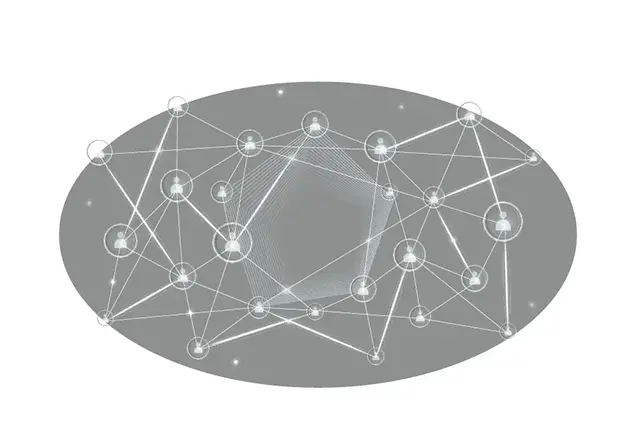

IEEE Conferences
IEEE (Institute of Electrical and Electronics Engineers) is the world's largest technical professional organization dedicated to advancing technology for the benefit of humanity. IEEE organizes numerous conferences worldwide, covering a broad spectrum of fields, including electrical engineering, computer science, telecommunications, robotics, artificial intelligence, and many more. IEEE conferences are renowned for their high-quality content, rigorous peer-review processes, and their role in shaping the future of technology and innovation.
IEEE Conferences
IEEE (Institute of Electrical and Electronics Engineers) is the world's largest technical professional organization dedicated to advancing technology for the benefit of humanity. IEEE organizes numerous conferences worldwide, covering a broad spectrum of fields, including electrical engineering, computer science, telecommunications, robotics, artificial intelligence, and many more. IEEE conferences are renowned for their high-quality content, rigorous peer-review processes, and their role in shaping the future of technology and innovation.
Overview of IEEE Conferences
IEEE conferences are designed to bring together researchers, engineers, practitioners, and industry professionals to share their latest research findings, discuss emerging trends, and collaborate on technological advancements. These conferences are held globally, with hundreds of events taking place each year, ranging from large, flagship conferences to smaller, specialized symposia and workshops. The conferences provide a platform for presenting peer-reviewed papers, attending tutorials, engaging in panel discussions, and networking with experts in the field.
Key Features of IEEE Conferences
IEEE conferences are comprehensive events that bring together researchers, professionals, and industry experts to share knowledge, explore innovations, and advance technology.
 Technical Sessions and Paper Presentations: Technical sessions are the core component of IEEE conferences, where researchers present their latest findings in oral or poster formats. These sessions are organized into various tracks or themes, allowing attendees to focus on topics that align with their interests. Each session is led by experts in the field, fostering in-depth discussions and providing valuable feedback to presenters. The rigorous peer-review process ensures that the content presented is of the highest quality, reflecting the latest advancements in technology and engineering.
Technical Sessions and Paper Presentations: Technical sessions are the core component of IEEE conferences, where researchers present their latest findings in oral or poster formats. These sessions are organized into various tracks or themes, allowing attendees to focus on topics that align with their interests. Each session is led by experts in the field, fostering in-depth discussions and providing valuable feedback to presenters. The rigorous peer-review process ensures that the content presented is of the highest quality, reflecting the latest advancements in technology and engineering. Plenary and Keynote Speakers: IEEE conferences often feature plenary and keynote sessions with distinguished speakers who are leaders in their respective fields. These sessions provide insights into the latest technological trends, cutting-edge research, and future directions in areas such as artificial intelligence, cybersecurity, renewable energy, and 5G communications. Keynote speakers are typically renowned academics, industry pioneers, or thought leaders, offering unique perspectives that inspire and inform the audience.
Plenary and Keynote Speakers: IEEE conferences often feature plenary and keynote sessions with distinguished speakers who are leaders in their respective fields. These sessions provide insights into the latest technological trends, cutting-edge research, and future directions in areas such as artificial intelligence, cybersecurity, renewable energy, and 5G communications. Keynote speakers are typically renowned academics, industry pioneers, or thought leaders, offering unique perspectives that inspire and inform the audience. Workshops and Tutorials: Workshops and tutorials at IEEE conferences are designed to provide hands-on learning experiences and in-depth exploration of specific topics. These sessions cover advanced technologies, research methodologies, software tools, and emerging trends. They are led by experts who offer practical insights and guidance, making them particularly valuable for students, early-career researchers, and professionals looking to expand their skill sets.
Workshops and Tutorials: Workshops and tutorials at IEEE conferences are designed to provide hands-on learning experiences and in-depth exploration of specific topics. These sessions cover advanced technologies, research methodologies, software tools, and emerging trends. They are led by experts who offer practical insights and guidance, making them particularly valuable for students, early-career researchers, and professionals looking to expand their skill sets. Panel Discussions and Special Sessions: Panel discussions bring together experts to debate current issues, challenges, and opportunities in technology and engineering. These interactive sessions allow participants to engage directly with panelists, ask questions, and share their perspectives. Special sessions focus on cutting-edge topics that are often at the intersection of different disciplines, such as ethics in AI, quantum computing, and smart cities, providing a platform for exploring the broader implications of technological innovation.
Panel Discussions and Special Sessions: Panel discussions bring together experts to debate current issues, challenges, and opportunities in technology and engineering. These interactive sessions allow participants to engage directly with panelists, ask questions, and share their perspectives. Special sessions focus on cutting-edge topics that are often at the intersection of different disciplines, such as ethics in AI, quantum computing, and smart cities, providing a platform for exploring the broader implications of technological innovation. Exhibitions and Industry Involvement: Many IEEE conferences include an exhibition area where companies, startups, and research institutions showcase their latest technologies, products, and solutions. Exhibitions provide an opportunity for attendees to see demonstrations, learn about new tools and applications, and connect with industry representatives. This interaction between academia and industry fosters collaboration, technology transfer, and commercialization of research.
Exhibitions and Industry Involvement: Many IEEE conferences include an exhibition area where companies, startups, and research institutions showcase their latest technologies, products, and solutions. Exhibitions provide an opportunity for attendees to see demonstrations, learn about new tools and applications, and connect with industry representatives. This interaction between academia and industry fosters collaboration, technology transfer, and commercialization of research. Networking Opportunities: IEEE conferences are renowned for their networking opportunities, providing attendees with the chance to connect with peers, potential collaborators, mentors, and industry leaders. Networking events, including social receptions, coffee breaks, and dedicated networking sessions, help facilitate discussions, share ideas, and establish professional relationships that can lead to future collaborations and career opportunities.
Networking Opportunities: IEEE conferences are renowned for their networking opportunities, providing attendees with the chance to connect with peers, potential collaborators, mentors, and industry leaders. Networking events, including social receptions, coffee breaks, and dedicated networking sessions, help facilitate discussions, share ideas, and establish professional relationships that can lead to future collaborations and career opportunities. Publication in IEEE Xplore Digital Library: One of the major benefits of presenting at an IEEE conference is the opportunity to have papers published in the IEEE Xplore Digital Library, one of the world's most widely used repositories for scientific and technical content. Papers accepted through IEEE conferences undergo a stringent peer-review process and, once published, are accessible to millions of researchers, increasing their visibility and citation potential.
Publication in IEEE Xplore Digital Library: One of the major benefits of presenting at an IEEE conference is the opportunity to have papers published in the IEEE Xplore Digital Library, one of the world's most widely used repositories for scientific and technical content. Papers accepted through IEEE conferences undergo a stringent peer-review process and, once published, are accessible to millions of researchers, increasing their visibility and citation potential. Student Competitions and Opportunities: IEEE conferences often feature special events for students, such as paper competitions, hackathons, and poster presentations. These opportunities allow students to showcase their research, gain recognition, and receive feedback from seasoned professionals. Participation in these events helps students build their professional profiles and gain valuable experience presenting their work in an international forum.
Student Competitions and Opportunities: IEEE conferences often feature special events for students, such as paper competitions, hackathons, and poster presentations. These opportunities allow students to showcase their research, gain recognition, and receive feedback from seasoned professionals. Participation in these events helps students build their professional profiles and gain valuable experience presenting their work in an international forum.
Benefits of Attending IEEE Conferences
IEEE conferences provide numerous benefits for attendees, including exposure to leading-edge research, global networking, professional development, career advancement, and industry collaboration.
 Exposure to Leading-Edge Research: Attendees of IEEE conferences are exposed to the latest research developments and technological innovations. The conferences provide a front-row seat to cutting-edge studies and breakthroughs, enabling participants to stay updated with the rapid advancements in their fields. This exposure can inspire new ideas, inform research directions, and enhance the quality of ongoing work.
Exposure to Leading-Edge Research: Attendees of IEEE conferences are exposed to the latest research developments and technological innovations. The conferences provide a front-row seat to cutting-edge studies and breakthroughs, enabling participants to stay updated with the rapid advancements in their fields. This exposure can inspire new ideas, inform research directions, and enhance the quality of ongoing work. Global Networking and Collaboration: IEEE conferences bring together a global audience, offering unparalleled networking opportunities. Attendees can connect with peers, potential collaborators, industry experts, and thought leaders from around the world. These connections can lead to collaborative research projects, joint publications, and valuable partnerships between academia and industry.
Global Networking and Collaboration: IEEE conferences bring together a global audience, offering unparalleled networking opportunities. Attendees can connect with peers, potential collaborators, industry experts, and thought leaders from around the world. These connections can lead to collaborative research projects, joint publications, and valuable partnerships between academia and industry. Professional Development and Learning: Workshops, tutorials, and panel sessions provide a wealth of learning opportunities for attendees. These sessions are designed to enhance skills, deepen knowledge, and provide hands-on experience with the latest tools and technologies. For early-career researchers and professionals, IEEE conferences serve as an excellent platform for gaining new insights, refining technical skills, and exploring emerging areas of interest.
Professional Development and Learning: Workshops, tutorials, and panel sessions provide a wealth of learning opportunities for attendees. These sessions are designed to enhance skills, deepen knowledge, and provide hands-on experience with the latest tools and technologies. For early-career researchers and professionals, IEEE conferences serve as an excellent platform for gaining new insights, refining technical skills, and exploring emerging areas of interest. Career Advancement Opportunities: IEEE conferences provide a platform for researchers to present their work to a large audience, gaining visibility and recognition within the academic and professional community. Presenting at these conferences can be a significant boost to a researcher's CV, demonstrating active engagement with the global research community. Additionally, the networking opportunities and exposure to potential employers can be crucial for career advancement.
Career Advancement Opportunities: IEEE conferences provide a platform for researchers to present their work to a large audience, gaining visibility and recognition within the academic and professional community. Presenting at these conferences can be a significant boost to a researcher's CV, demonstrating active engagement with the global research community. Additionally, the networking opportunities and exposure to potential employers can be crucial for career advancement. Access to the IEEE Xplore Digital Library: Participation in IEEE conferences provides access to a vast amount of technical content available in the IEEE Xplore Digital Library. This access allows attendees to explore a wealth of research articles, conference proceedings, standards, and educational content, supporting their ongoing research and professional development.
Access to the IEEE Xplore Digital Library: Participation in IEEE conferences provides access to a vast amount of technical content available in the IEEE Xplore Digital Library. This access allows attendees to explore a wealth of research articles, conference proceedings, standards, and educational content, supporting their ongoing research and professional development. Industry-Academia Collaboration: The strong presence of industry professionals at IEEE conferences fosters collaborations that bridge the gap between academic research and practical applications. This collaboration is vital for translating innovative ideas into real-world solutions and for keeping academic research aligned with industry needs and trends.
Industry-Academia Collaboration: The strong presence of industry professionals at IEEE conferences fosters collaborations that bridge the gap between academic research and practical applications. This collaboration is vital for translating innovative ideas into real-world solutions and for keeping academic research aligned with industry needs and trends.
Challenges and Considerations
While IEEE conferences offer significant benefits, there are some challenges to consider. The costs associated with attending, including registration fees, travel, and accommodation, can be substantial, particularly for international events. Additionally, the competitive nature of paper submissions means that not all research is accepted for presentation, which can be discouraging for authors.
Furthermore, navigating large conferences with multiple parallel sessions can be overwhelming, making it essential for attendees to plan their schedules effectively to maximize the value of their participation.
Conclusion
IEEE conferences are a cornerstone of the global engineering and technology community, offering a platform for knowledge exchange, collaboration, and professional development. With their rigorous peer-review processes, high-quality technical content, and extensive networking opportunities, IEEE conferences continue to drive innovation and excellence in fields ranging from electrical engineering to artificial intelligence. Whether you are a researcher, engineer, student, or industry professional, attending an IEEE conference provides invaluable opportunities to learn, connect, and contribute to the future of technology.
Partnered Content Networks
© 2024 STEM Network. All rights reserved.





























